If you’re a cat owner, you’ve probably scratched your head at some of the bizarre things your feline friend does. Cats are fascinating creatures, full of personality and quirky behaviors that often seem mysterious. But fear not! Experts have finally shed light on some of these perplexing habits. Here’s a list of 14 weird cat habits and the reasons behind them.
1. Kneading
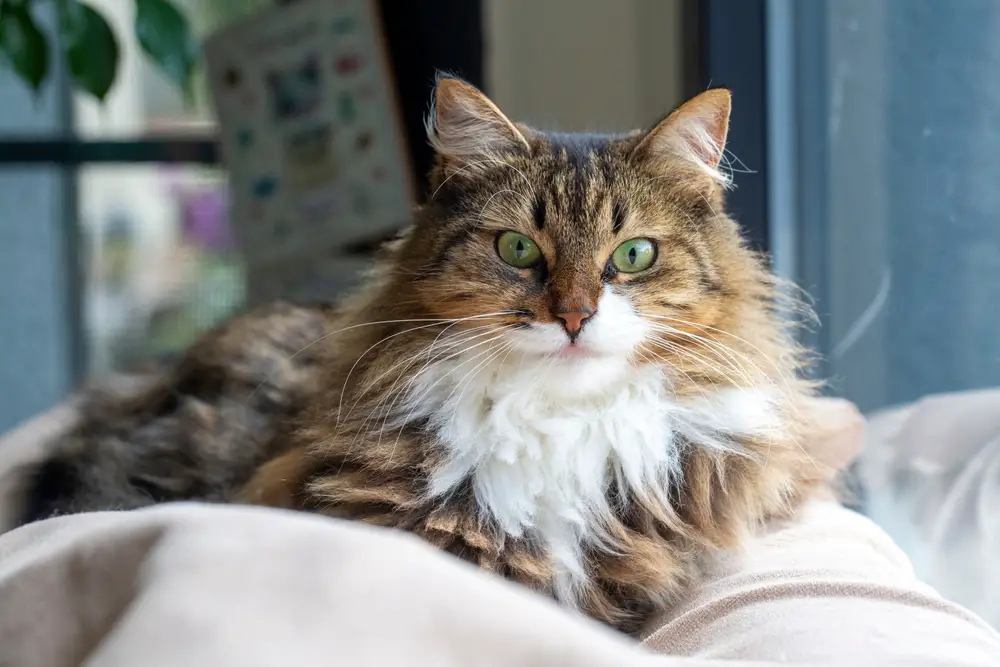
You’ve probably noticed your cat rhythmically pressing their paws into your lap or a soft blanket. This behavior, known as kneading, is something cats start doing as kittens while nursing. Experts suggest that kneading is comforting for cats and might even be a way to mark their territory since they have scent glands in their paws. According to Dr. Susan G. Friedman, a renowned animal behaviorist, kneading is also a sign that your cat feels safe and content. So next time you’re getting a kitty massage, know that it’s a compliment!
Some cats knead more vigorously than others, and some might even add a purring soundtrack to their kneading session. If your cat has sharp claws, it might be a good idea to keep them trimmed to avoid discomfort. But rest assured, this peculiar behavior is perfectly normal. It’s just your cat’s way of showing affection. And who doesn’t love a little extra love from their furry friend?
2. Chattering
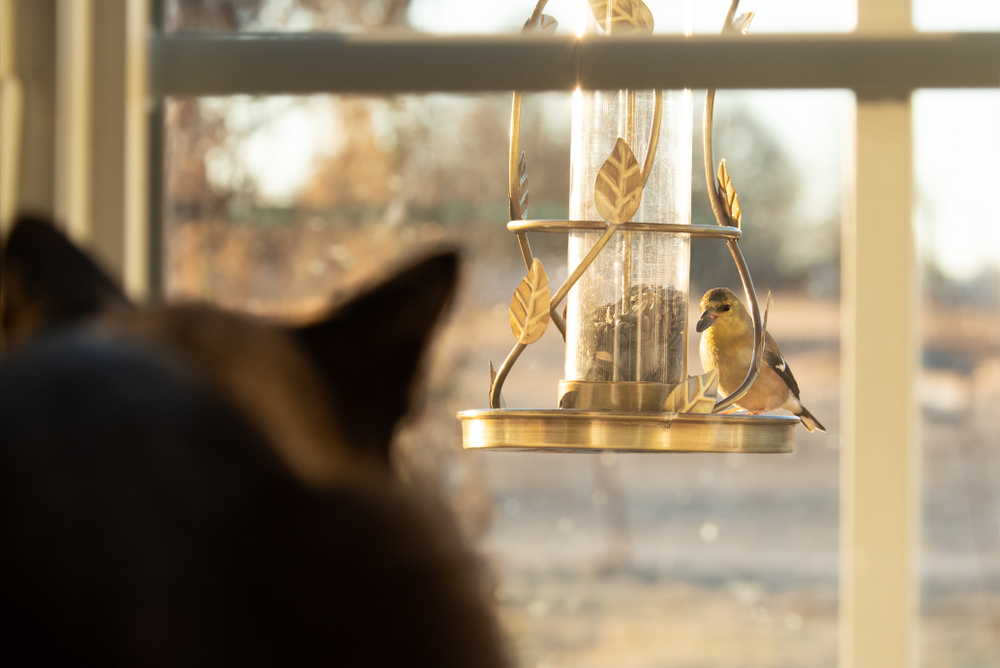
When your cat sits by the window and makes a strange chattering noise at birds, it can be both amusing and puzzling. This behavior might seem odd, but it actually has a logical explanation. Cats chatter as a way of expressing their frustration at not being able to catch their prey. Some experts believe it may also be a practice for the “killing bite” they would use in the wild. Essentially, your cat is in hunter mode, even if they’re viewing the world from the safety of your home.
Interestingly, the chattering sound is accompanied by rapid jaw movements, which adds to the strange spectacle. Despite appearances, this behavior is fairly common among domestic cats. It’s a window into their instinctual hunting habits. So, the next time your cat chatters, know that they’re just channeling their inner predator. It’s a little reminder that no matter how domesticated they are, they still have wild instincts.
3. Bringing You “Gifts”
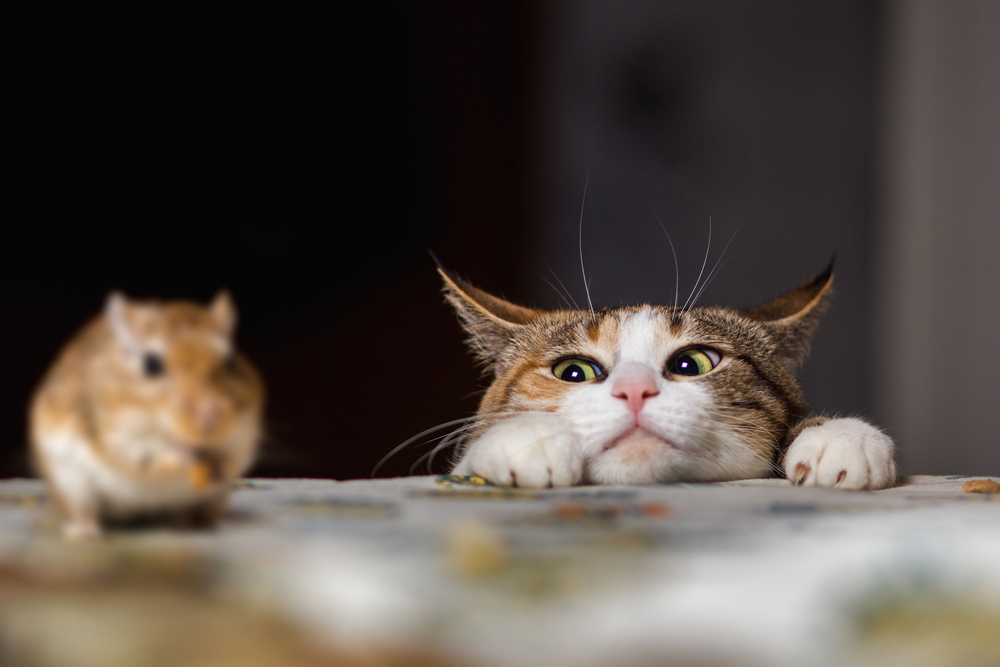
If you’ve ever found a dead mouse or a wriggling insect on your doorstep, you’ve probably wondered what your cat was thinking. This behavior is actually rooted in their instinct to hunt and provide for their family. Cats often bring their “kills” to their human companions as a form of sharing or to show their hunting prowess. According to Dr. John Bradshaw, an expert in feline behavior, this is a sign that your cat sees you as part of their family. So while it might be a bit gross, consider it a compliment from your furry friend.
Sometimes, indoor cats will bring you toys as a substitute for real prey. This is their way of engaging in play hunting, which is an important part of a happy and healthy cat’s life. If you’d rather not receive these special deliveries, provide your cat with plenty of toys and playtime. It helps them satisfy their hunting instincts without the actual hunt. Either way, these gifts are a testament to your cat’s love and instinctual nature.
4. Headbutting
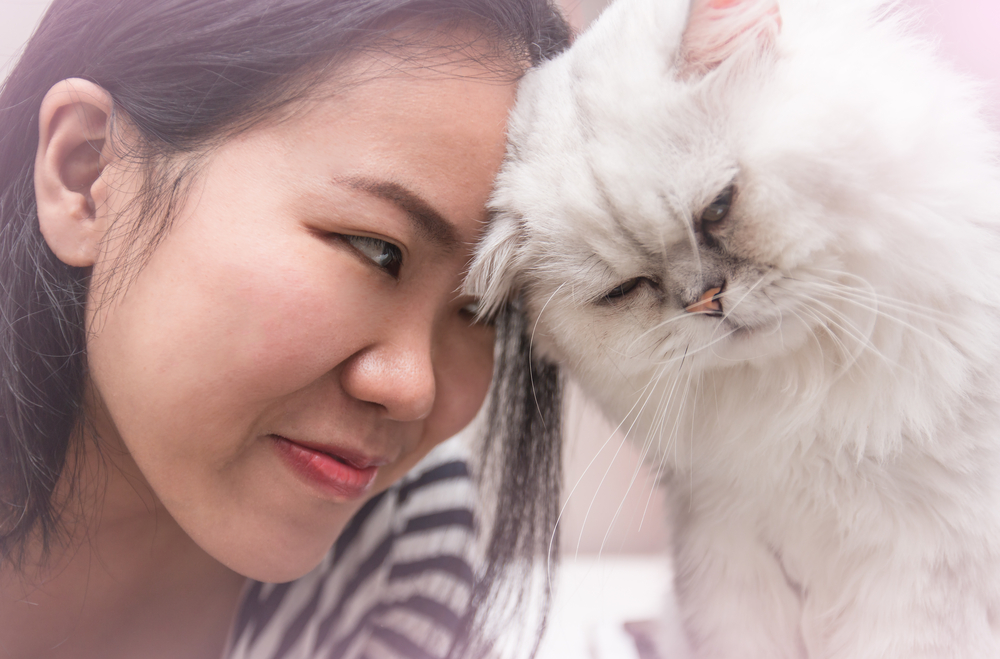
When your cat gently bumps their head against you, it might feel like they’re trying to be affectionate. In a way, they are, but there’s more to it than meets the eye. This behavior, known as bunting, is a form of scent marking. Cats have scent glands located on their heads, and by headbutting you, they’re marking you as part of their territory. It’s a blend of love and ownership, signaling that you belong to their social group.
Headbutting is a way for cats to communicate and bond with their favorite people. It’s also an indication that your cat feels safe and secure around you. While it might catch you off guard when you’re least expecting it, take it as a sign of trust. Cats use headbutting to mark familiar territory and people, which strengthens their bond with you. So enjoy these little nudges as a special connection with your feline friend.
5. Knocking Things Over
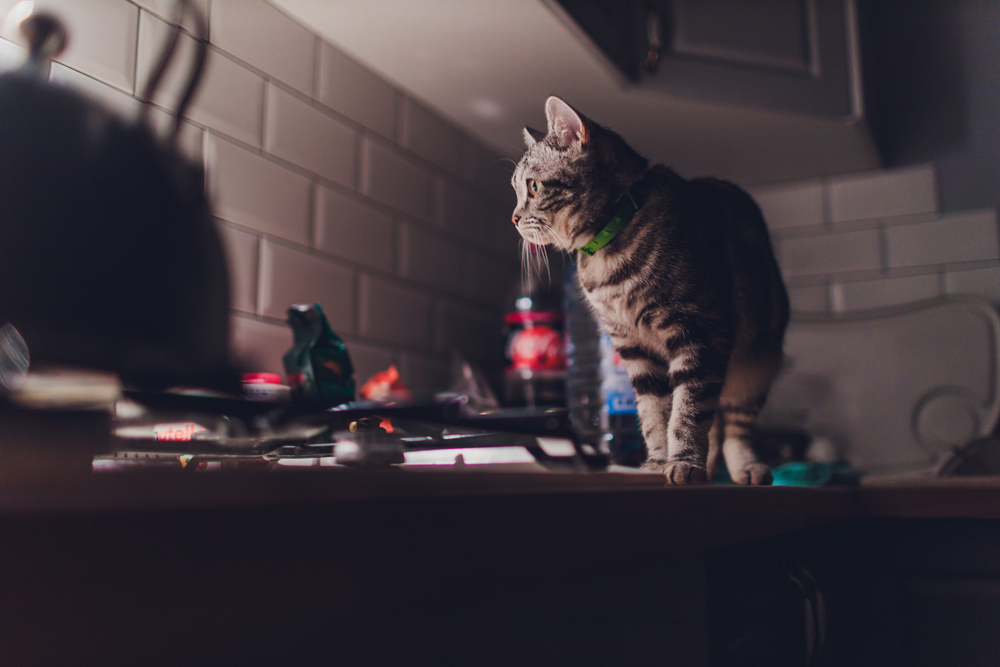
Cats have a notorious habit of knocking things off tables and counters. While it might seem like they’re doing it on purpose, there’s a reason behind this peculiar behavior. According to Dr. Mikel Delgado, a cat behavior expert, cats are naturally curious creatures. They use their paws to explore their environment, which sometimes results in items being knocked over. It’s not mischief; it’s exploration and a bit of fun.
Cats also enjoy the reaction they get from their human companions when they push things off surfaces. This behavior can be a way for them to gain attention or engage in play. If you’re tired of cleaning up after your cat’s curiosity, try providing interactive toys to satisfy their need to explore. It’s a way to channel their energy into something more constructive. Remember, they’re not trying to be naughty; they’re just being curious cats.
6. Zoomies
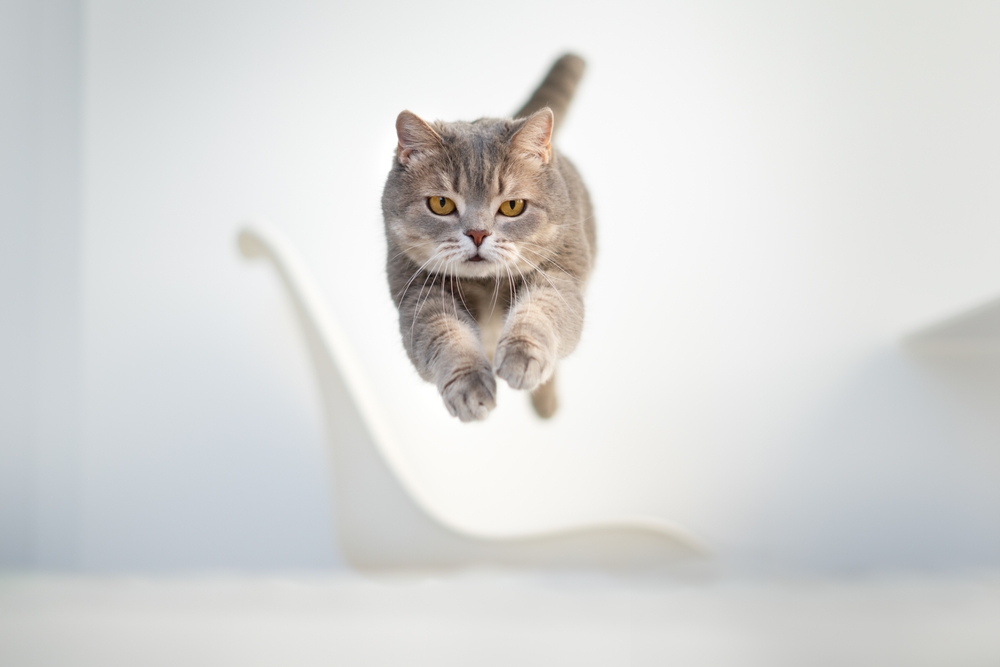
You’ve probably witnessed your cat suddenly dart around the house at lightning speed. This burst of energy, often referred to as the zoomies, is a common cat behavior. Cats are naturally nocturnal and have periods of high energy, especially after a restful nap. The zoomies allow them to release pent-up energy and mimic the hunting and pouncing they would do in the wild. It’s completely normal and a sign of a healthy, active cat.
Sometimes, the zoomies might happen at the most inconvenient times, like in the middle of the night. This is because cats are crepuscular, meaning they are most active during dawn and dusk. If your cat tends to get the zoomies at night, make sure they’re getting enough playtime during the day to expend energy. It can help reduce the intensity or frequency of these sudden sprints. Embrace the zoomies as a part of your cat’s playful nature.
7. Sleeping In Small Spaces
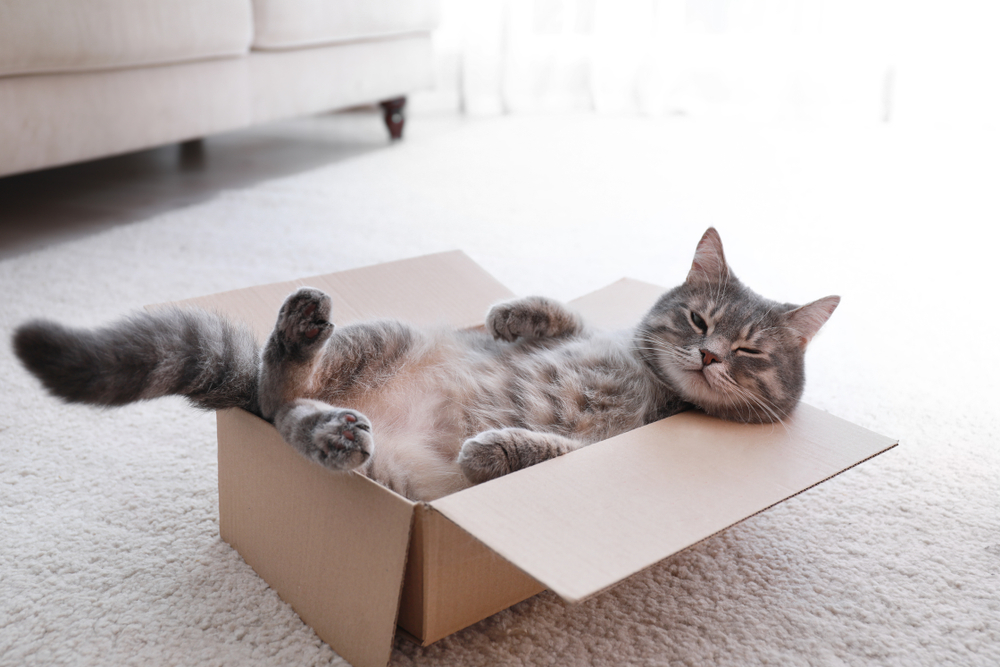
Cats have a peculiar affinity for squeezing themselves into the smallest possible spaces. It’s not just a funny quirk; there are logical explanations for this behavior. Small spaces provide cats with a sense of security and warmth. Dr. Sarah Ellis, a renowned feline behaviorist, suggests that this instinct goes back to their wild ancestors, who needed to hide from predators. By curling up in a confined spot, cats feel safe and less exposed.
This behavior is also linked to their body temperature regulation. Cats love warmth, and tight spaces help them conserve body heat. You might find your cat choosing a cozy box or a narrow shelf to snuggle into. Providing them with a designated small space like a cat bed or a box, can make them feel at home. It’s just one of the many ways your cat seeks comfort in their environment.
8. Licking Plastic
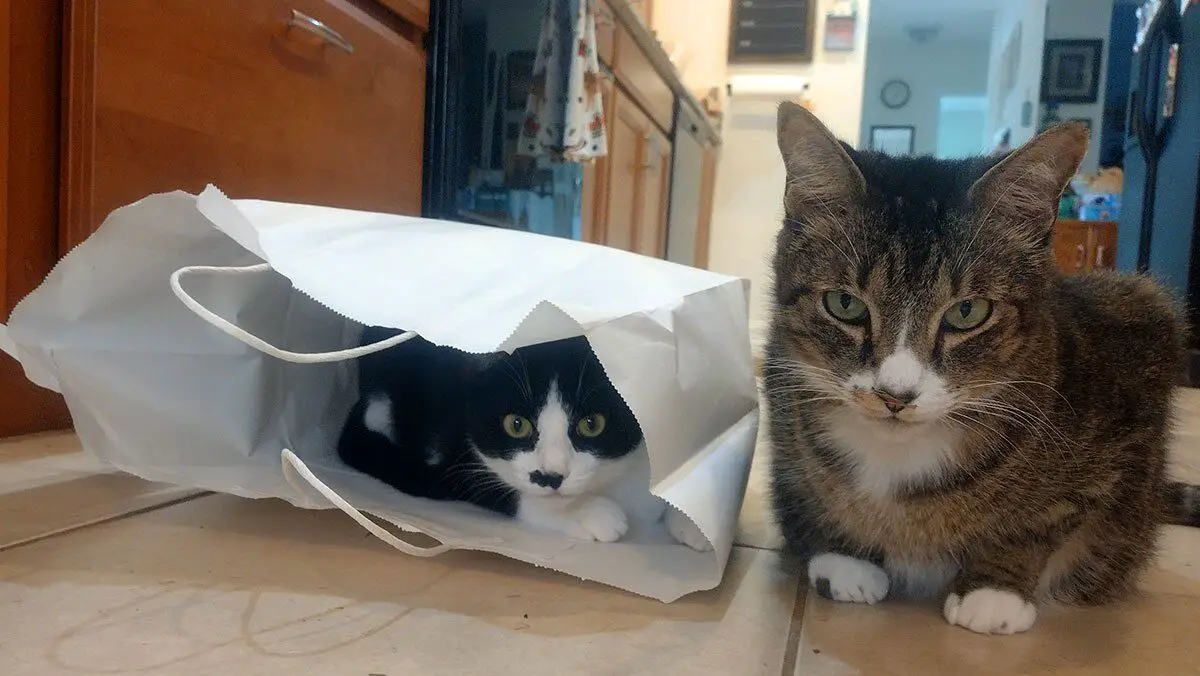
If you’ve ever caught your cat licking a plastic bag, you’re not alone in wondering why. This strange habit can be attributed to several factors. For one, the texture and taste of plastic can be intriguing to cats. Some plastics contain animal by-products or corn starch, which can attract cats. Additionally, licking plastic can be a way for cats to soothe themselves or relieve boredom.
While licking plastic is usually harmless, it’s essential to ensure your cat doesn’t ingest it. Ingested plastic can lead to health issues like blockages in the digestive tract. Make sure to keep plastic bags and items out of reach if your cat has this habit. Providing them with safe chew toys or interactive play can divert their attention. It’s one of those quirky behaviors that require a little management to keep your kitty safe.
9. Staring Into Space
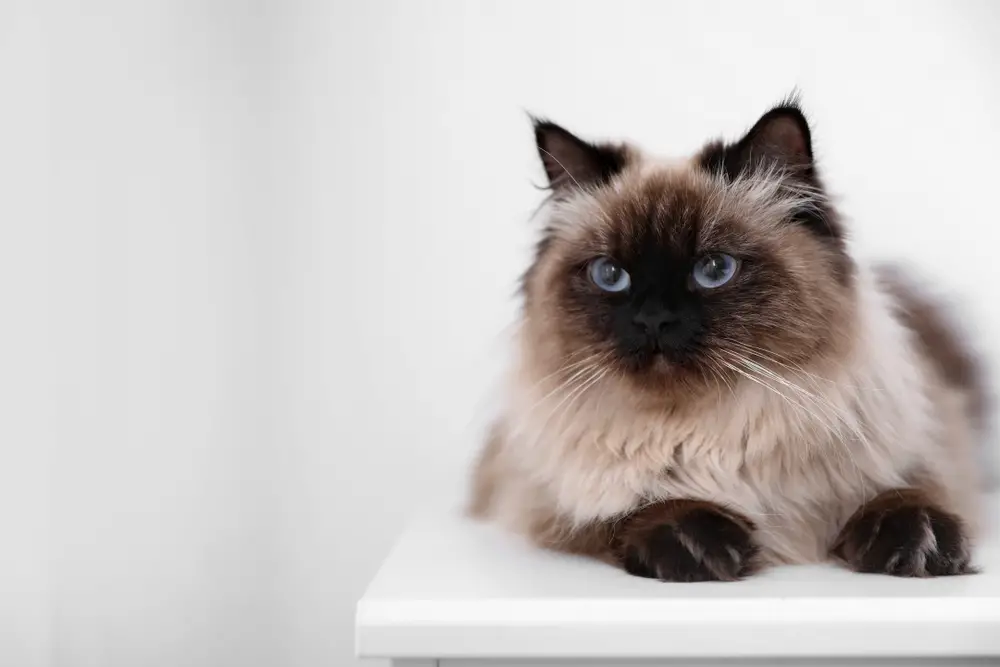
Have you ever caught your cat staring intently at something that seems invisible? Cats staring into space is a common phenomenon that can be a bit eerie. This behavior is often due to their highly developed senses. Cats can detect subtle movements and sounds that are beyond our perception. So while it might look like they’re zoning out, they could be observing something that’s imperceptible to you.
Cats are also known for their curiosity, and they enjoy observing their surroundings. It’s a way for them to stay alert and aware of any changes in their environment. If your cat is staring into space, it’s likely just their way of engaging with the world around them. This behavior is perfectly normal and not a cause for concern. Just let them be the vigilant observers they are.
10. Hiding Objects
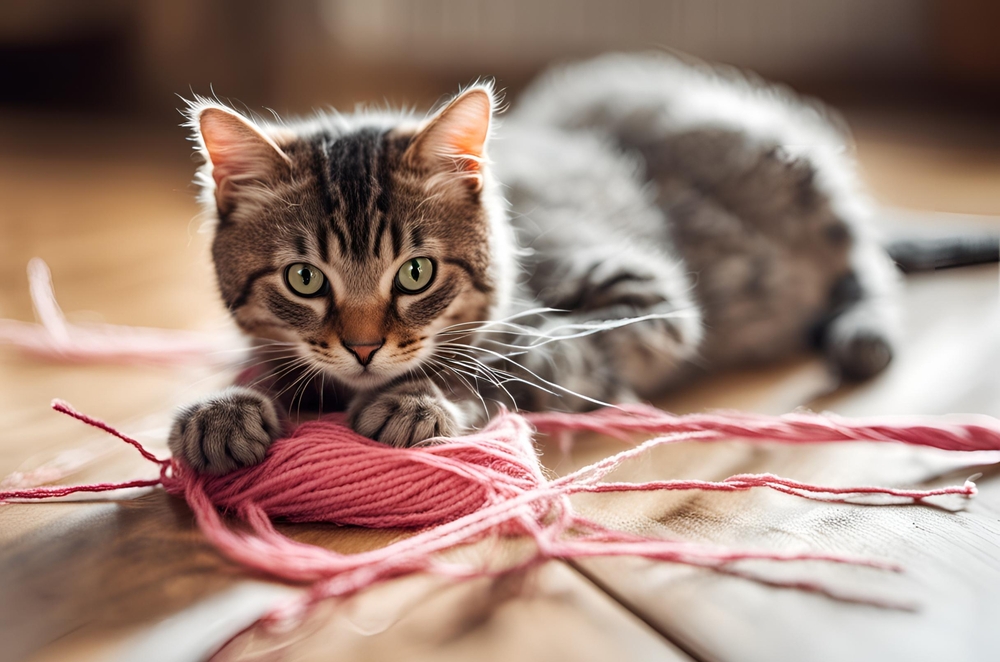
If your keys or socks keep disappearing, your cat might be the culprit. Cats have an instinctual drive to capture and hide objects as if they were prey. This behavior can be traced back to their wild ancestors, who would stash food for later consumption. Modern domestic cats sometimes express this instinct by hiding small items around the house. It’s a playful behavior that mimics hunting and safekeeping.
Interestingly, some cats have preferred items they like to steal and hide, such as toys or household objects. They might do this to engage in solitary play or to have a stash of “prey” to return to later. If this behavior becomes problematic, ensure that your cat has plenty of toys and interactive playtime to satisfy their hunting instincts. It’s just another way that cats express their playful and instinctual nature. Keep an eye on your belongings, and embrace this quirky aspect of your cat’s personality.
11. Sleeping On Your Head
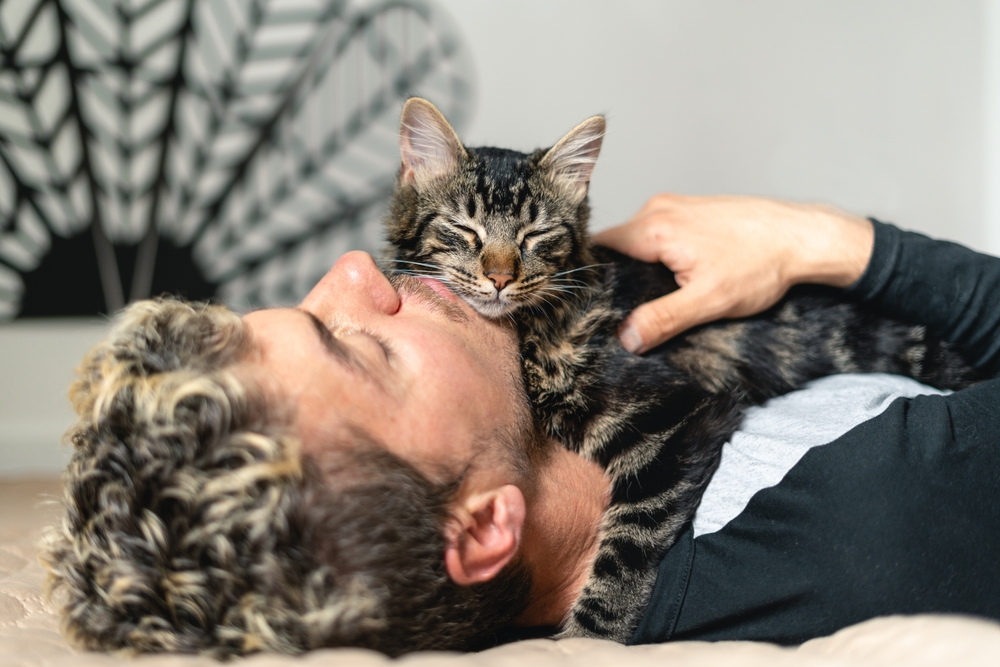
If you wake up with a cat on your head, you’re not alone. Many cat owners experience this peculiar sleeping arrangement. Cats are drawn to warmth and the scent of their human companions. Your head provides both of these comforts, making it an attractive sleeping spot. It’s a sign that your cat feels safe and secure with you.
Additionally, cats have a distinct preference for elevated sleeping areas. Your head, being higher than the rest of your body, fits the bill. This behavior is also a way for your cat to be close to you without feeling smothered. While it might not be the most comfortable position for you, it’s a testament to your cat’s affection. Consider it a unique way for your feline friend to cuddle up.
12. Drinking From Faucets
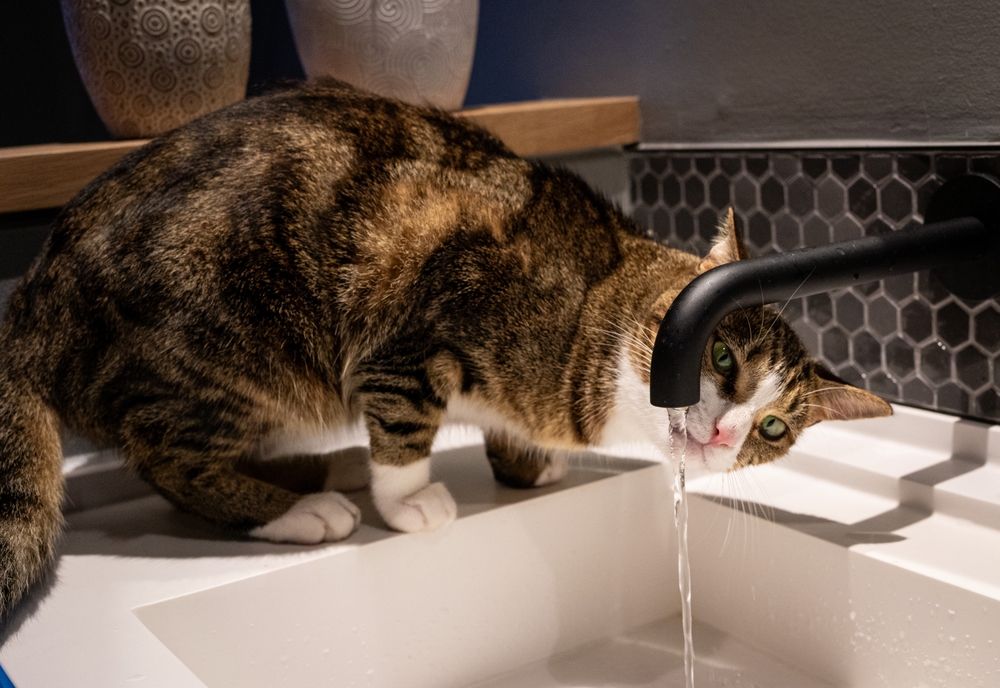
Some cats prefer to sip from a dripping faucet rather than drink from their bowl. This behavior is rooted in their instinctual preference for fresh, running water. In the wild, cats are drawn to moving water because it’s less likely to be contaminated. Running water is often cooler and more oxygenated than stagnant water in a bowl. So, when your cat chooses the faucet, they’re following their natural inclinations.
Cats also enjoy the sensory experience of drinking from a running source. The sound and movement of the water can be intriguing and enjoyable for them. If your cat has this habit, consider investing in a pet water fountain. It provides a continuous source of fresh water that satisfies their preference for running water. It’s a simple way to cater to your cat’s hydration needs while indulging their instincts.
13. Following You to the Bathroom
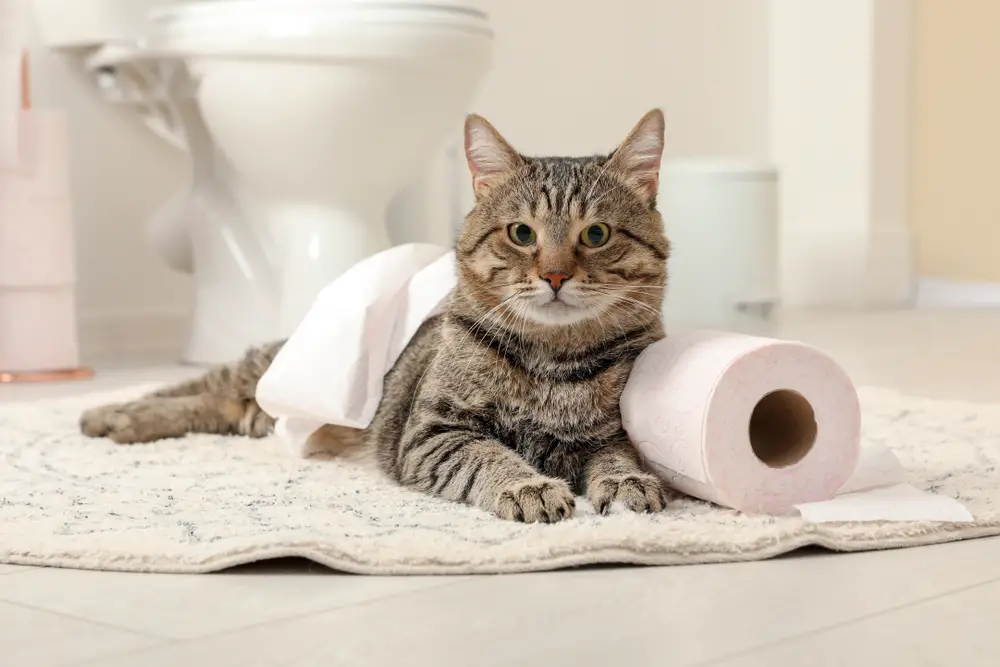
If your cat insists on accompanying you to the bathroom, you’re not alone. This behavior is surprisingly common among cats and can be explained by their social nature. Cats are curious creatures and want to be involved in whatever you’re doing, even if it’s just going to the bathroom. They see you as a part of their social group and want to keep you company.
Additionally, the bathroom is a small, enclosed space that can make your cat feel secure. It’s also full of interesting sights, sounds, and smells that captivate their curiosity. If your cat follows you to the bathroom, it might be their way of spending quality time with you. While it might seem a bit odd, it’s a sign of your cat’s affection and desire to be near you. So next time, enjoy the company of your furry bathroom buddy.
14. Ignoring You
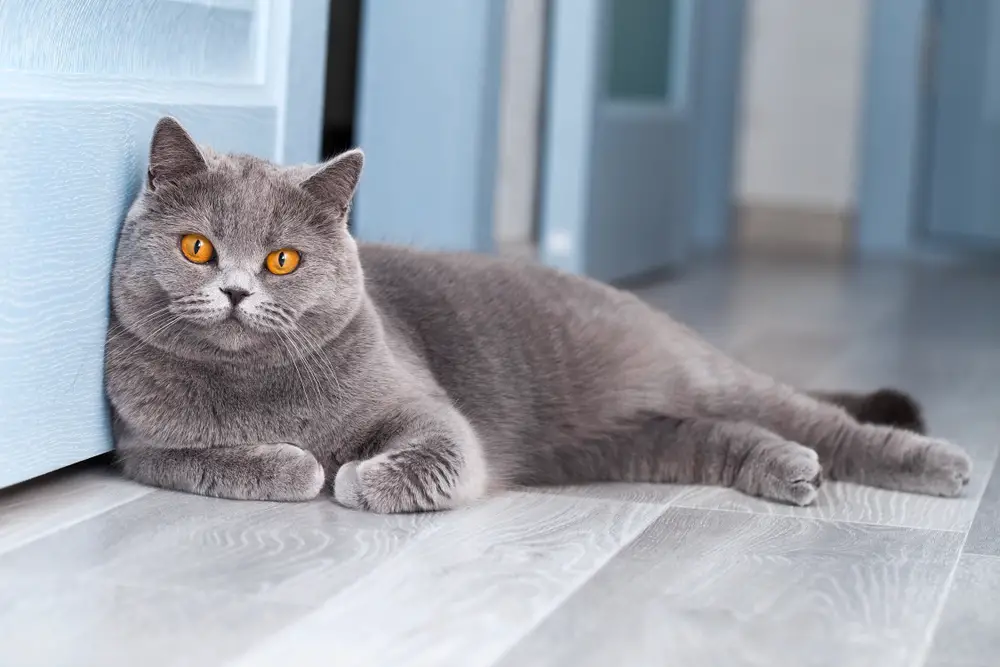
Cats are notorious for their occasional aloofness, which can be frustrating for their human companions. When your cat ignores you, it might seem like they’re being indifferent, but there’s more to it. Cats are independent creatures with fluctuating energy levels and social needs. Sometimes they just need alone time to recharge and relax. Ignoring you is their way of setting boundaries and enjoying some solitude.
It’s also important to remember that cats communicate differently from humans. They may not express affection in the same way, but that doesn’t mean they don’t care. Respecting your cat’s need for space is crucial in maintaining a healthy bond. When they’re ready, they’ll seek your attention and affection. So, give them the space they need, and they’ll come back to you when they’re in a social mood.
